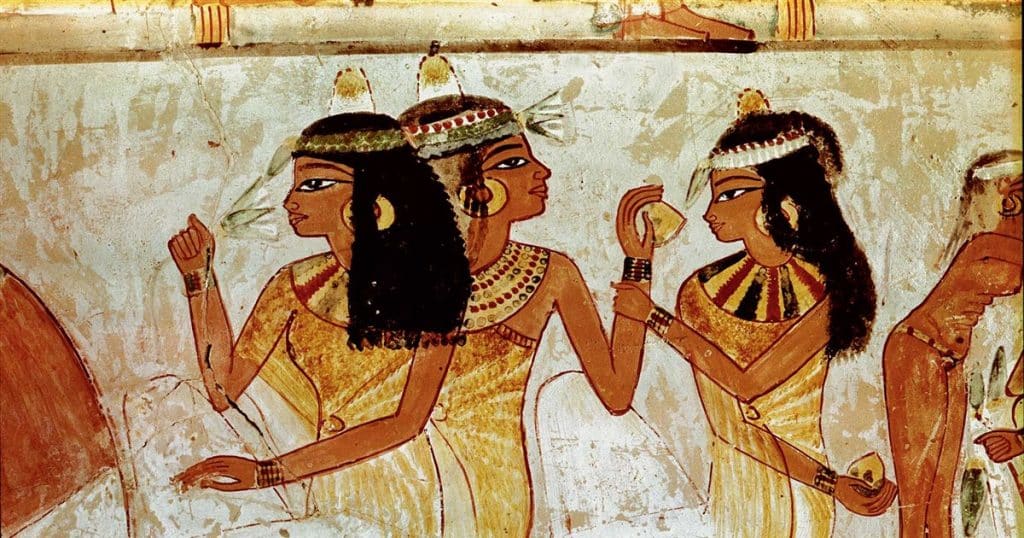PRODUCTOS ARTESANOS
ENVIO GRATUITO EN EUROPA A PARTIR DE 60€

The use of aromatic substances has been known since the dawn of civilisation. Some authors date its origin to the Neolithic period, with its possible use in attracting prey for hunting or repelling insects, for example.
For the Egyptians, the body and spirit come together again in a second life, so it was necessary to preserve the body. Thus, scents and perfumes play an important role in mummification and funerary rites. It is curious that when Tutankhamun’s tomb was accessed, more than three thousand flasks, jars and ointments were found, and despite the fact that thirty centuries had passed, the perfumed atmosphere could still be perceived.
The oldest known perfumes were discovered on the island of Cyprus. Archaeological excavations in 2004-2005 revealed evidence of a factory that existed 4,000 years ago during the Bronze Age, covering an area of over 4,000m², indicating that perfume manufacture was on an industrial scale.
In ancient China, the use of perfumes in religious ceremonies is recorded from around 2000 B.C. There, perfume was stored in the popular ‘scented sachets’, small sachets of cloth or gold thread containing aromatic herbs inside. Its use was exported to Japan, where in the 6th century, through Korean Buddhist monks, scents were used in purification rites.
The first known chemist was a perfumer called Tapputi, whose existence dates back to 1200 BC in Mesopotamia. She played an important role in Mesopotamian government and religion as foreman of the royal palace, and developed methods of extracting fragrances. These were to form the basis of perfumery, and he was the first recorded person to record the techniques used. The methods that have survived are based on the use of solvents, and the extracted fragrances had quite prominent roles in both religious ceremonies and divination rituals.
Ancient Greece filled its myths with perfumes, perfuming the statues of its gods with oils, as well as the bodies of athletes and women. Military expeditions to the perfumed and deep lands of the East inevitably left an olfactory mark on the Greek armies and especially on Alexander the Great: it is said that as soon as he came into contact with these aromatic traditions alien to his culture, the Macedonian had his rooms sprinkled with rich perfumes wherever he went.
As for ancient Rome, it retained the aromatic substances of the Mediterranean societies it conquered. They brought more technical and incremental solutions than scientific revolutions, such as the early uses of glass as perfume packaging.